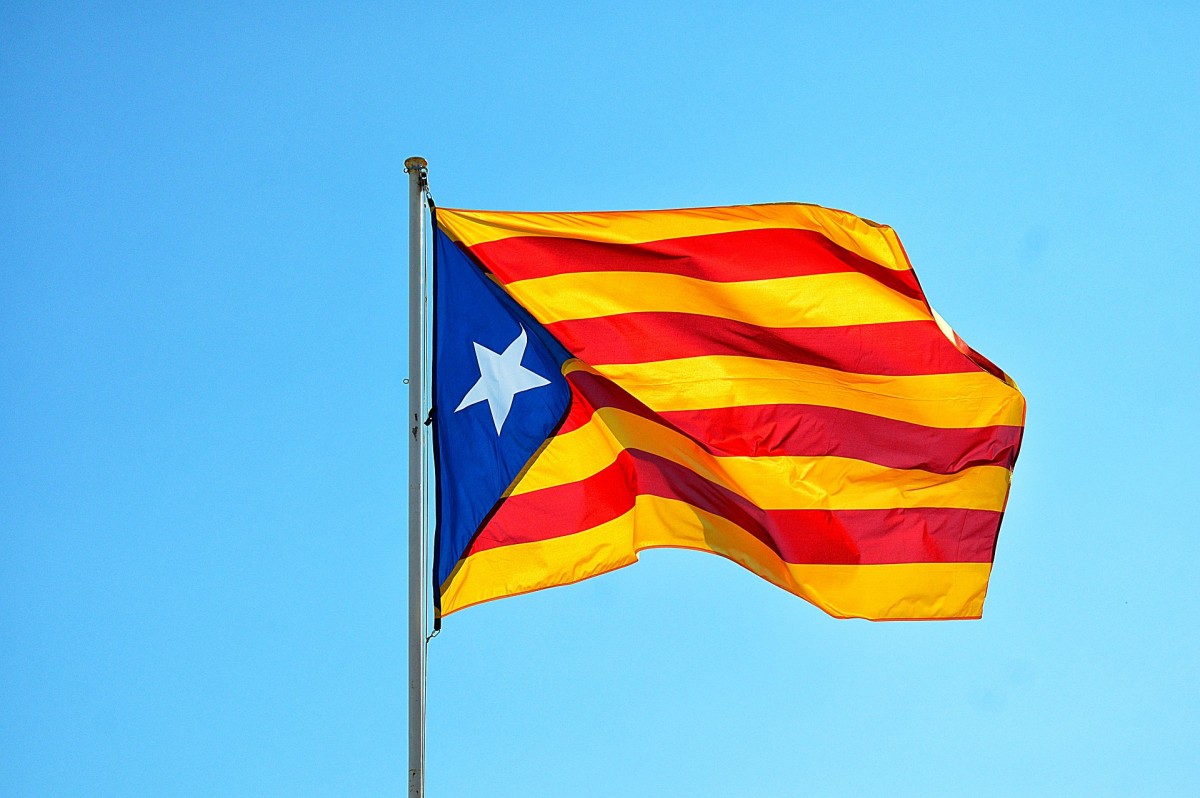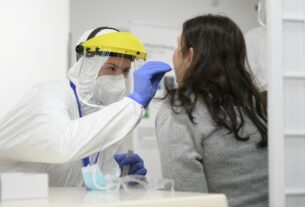Catalonians gathered on Friday afternoon to mark the region’s national day – but the event was much more muted this year because of the coronavirus pandemic.
In recent years the occasion has been used to show support for Catalan independence.
But health measures imposed to curb the spread of SARS-CoV-2 — the virus that causes COVID-19 — have led organisers to scrap the main event in favour of about 100 smaller ones.
But there still was a protest in the region’s capital, Barcelona, from 17:30 CEST. Some 50,000 people were expected to attend.
Diada, as it is also known, is a day-long festival commemorating the fall of Barcelona during the War of Spanish Succession in 1714. Since 2012, the day has become a show of force for the separatist movement.
The demonstration saw a record low attendance last year with 600,000 people attending against the backdrop of divisions in the movement, just before the conviction in October of nine leaders for the attempted secession of October 2017.
Quim Torra, the pro-independence President of Catalonia, said in a statement issued on Thursday, that the region’s history has been defined by a “sustained struggle to keep hope alive”.
“We persist in our democratic pursuit of freedom and will continue to do so until we achieve national fulfilment as an independent state. We will pursue this goal with the inclusive and entrepreneurial spirit that defines us. And our focus will be on achieving one great goal: a better life for seven and a half million Catalans — for those who have lived in Catalonia, those who live here now, and those who will live here in the future, wherever they come from,” he added.
Carles Puigdemont, a former president of Catalonia and a current member of the European Parliament, is self-exile in Belgium, marked the day on Twitter urging “civil society and institutions to prepare the necessary measures an actions to materialise the popular mandate for independence.”
Puigdemont advocates the confrontation with Madrid while his ex-number 2 Oriol Junqueras, currently in prison, is in favour of dialogue with Madrid.
These tensions have increased since regional president Quim Torra announced early elections in January, the date of which has still not been set due to the pandemic.
Torra was sentenced last year by the courts to a year and a half of ineligibility for disobeying the electoral authorities by putting up a pro-independence poster at the seat of the regional government.
The country’s highest court, the Supreme Court, is due to rule on his appeal next week.
If this sentence is confirmed, Torra will lose his post as regional president, which risks causing further turmoil in the region.
euronews.com
pixabay


















